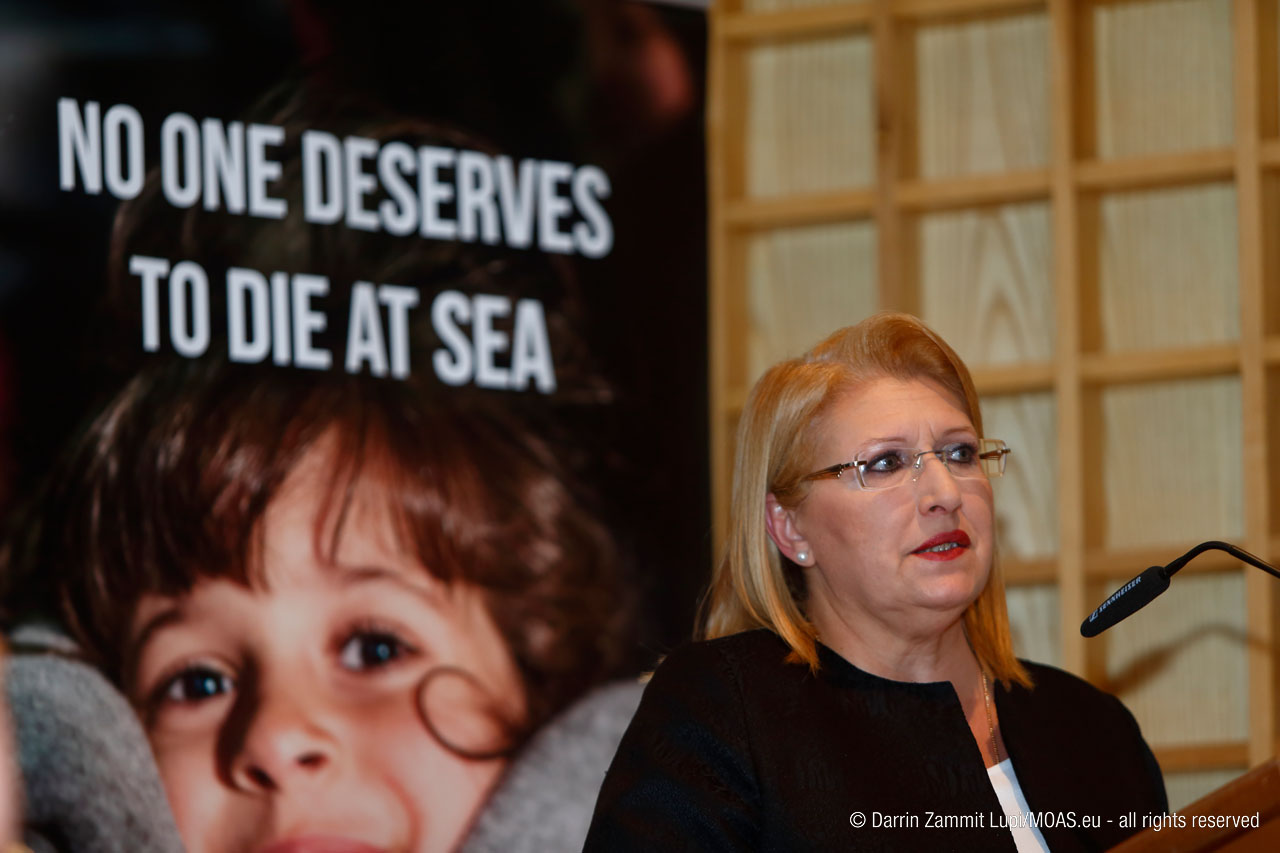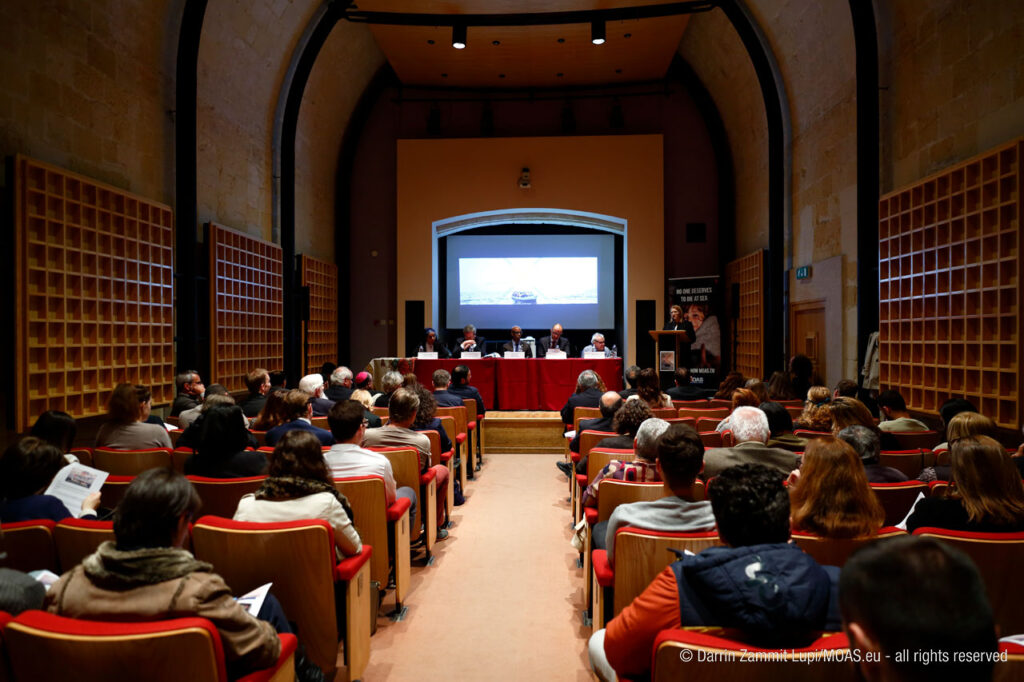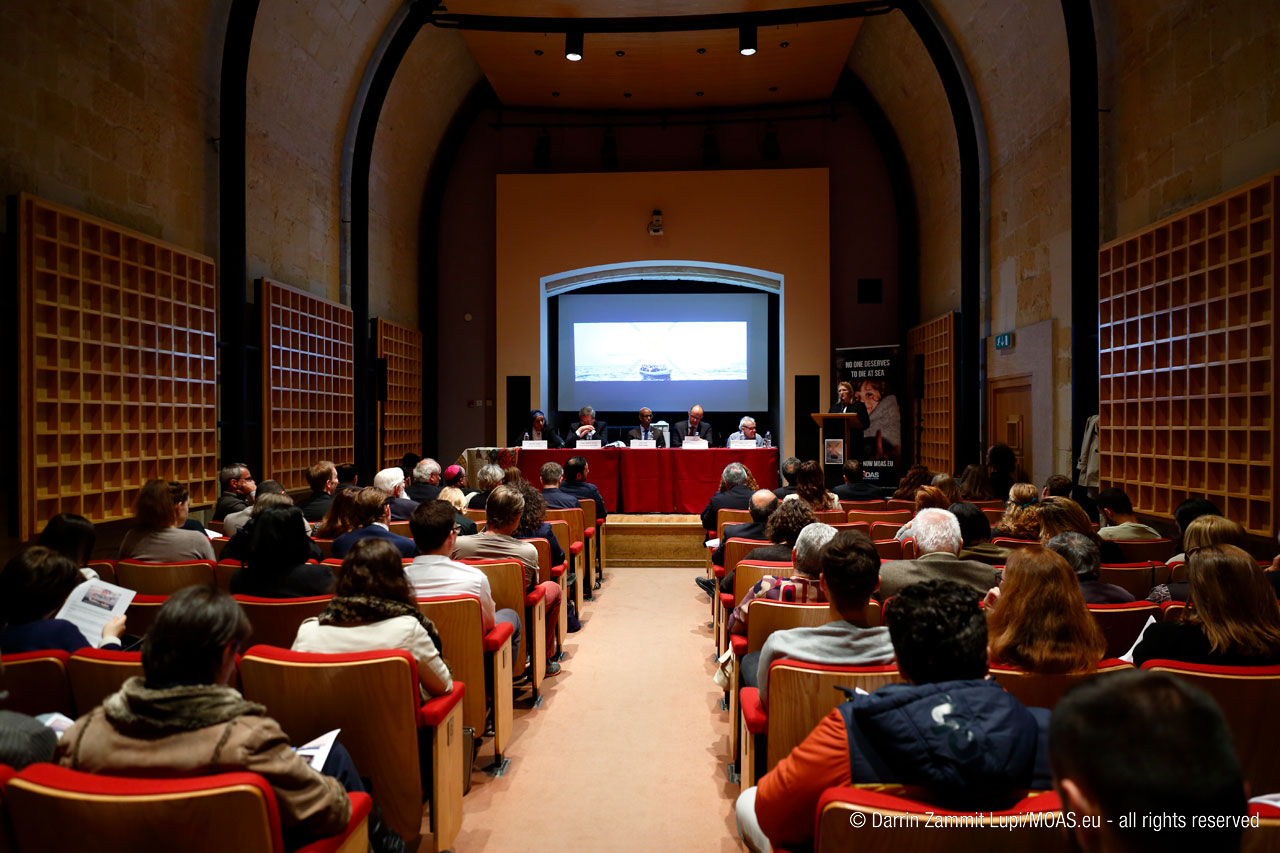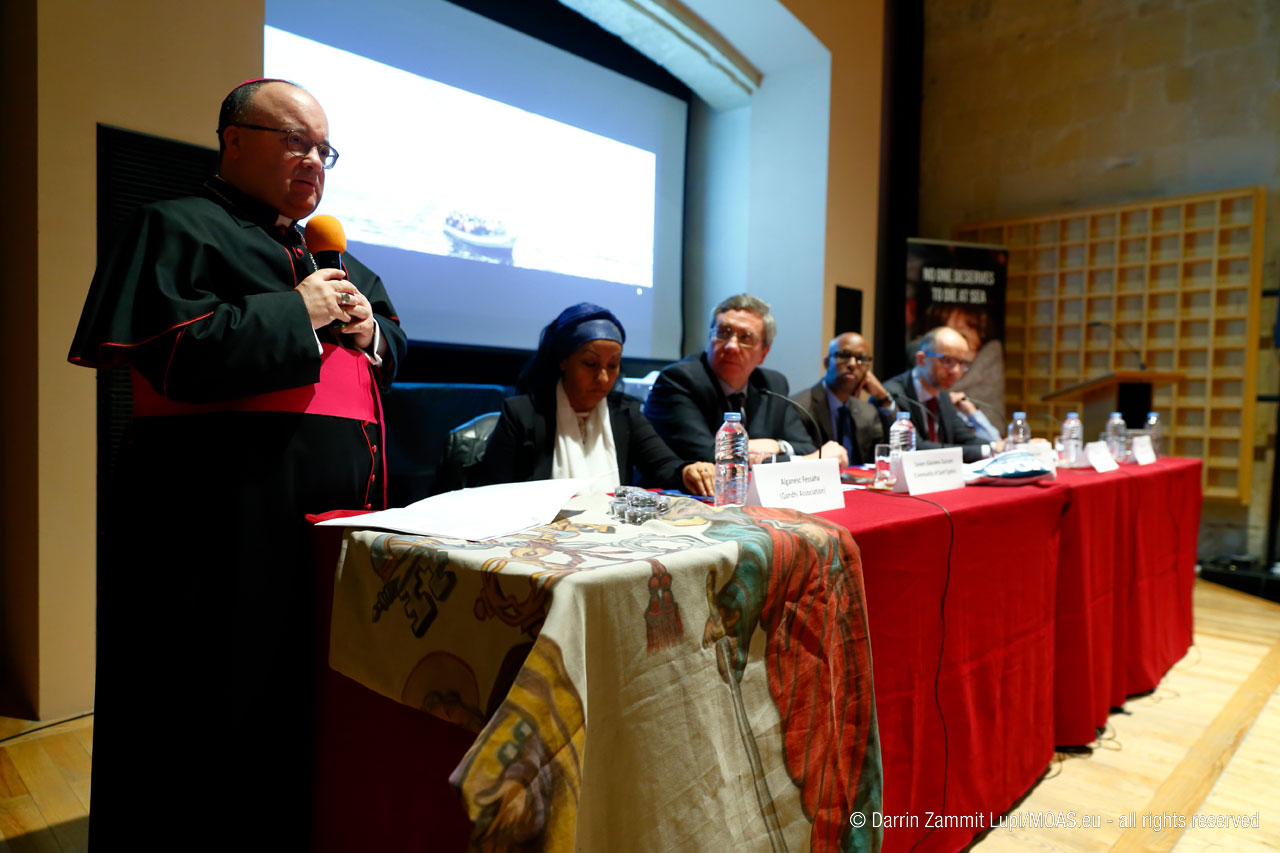Exploring Safe and Legal Alternatives to the Maritime Migration Route
Last week, MOAS was delighted to host the second edition of MOAS X Change, a forum dedicated to understanding the migration phenomenon. This year, MOAS was joined by a panel of experts in migration, brought together from across civil society and academia. They discussed Humanitarian Corridors and other safe and legal alternatives to the deadly maritime route, and how we can work together to make them a reality.
Opening of the Day
MOAS was honoured to be joined by the Archbishop of Malta, Mgr Charles Scicluna, who shared his best wishes for the upcoming 2017 Mission, and blessed a St Peter and St Paul flag which had been presented to MOAS by the diocese of Cologne.
The keynote speech of the day was delivered by H.E Marie-Louise Coleiro Preca, President of Malta, who set out the importance of humanitarian corridors as a way to prevent yet more deaths at sea. She highlighted how the creation of safe and legal routes offer a direct opportunity to undermine human smuggling networks, but that a global spirit of political will is needed to ensure that the corridors are implemented.
 “We must stand together and be vociferous, to emphasise the need for policies that are driven by our shared duty to safeguard the wellbeing of every individual, through a fundamental human rights-based approach.”
“We must stand together and be vociferous, to emphasise the need for policies that are driven by our shared duty to safeguard the wellbeing of every individual, through a fundamental human rights-based approach.”
–H.E Marie-Louise Coliero
She foregrounded the need to listen to the experiences of migrants and refugees as they describe them, in order to build effective, life-saving strategies for the future. The President closed her speech by urging all organisations to work together in synergy in order to create sustainable responses and to be catalysts in building a culture of meaningful peace across our nations and our world.
Following the President’s speech, the panel discussion began by focusing on the policy and political environment surrounding migration in 2017, before turning to humanitarian corridors and the role of civil society.
Panel Discussion
To open the discussion, our moderator, Marina Lalovic, encouraged the panellists to speak on the theme of numbers relating to migration, and how they help – or hinder- how we understand the reality of the migration phenomenon.
As part of our coverage of the event, we have created a special ‘highlights’ podcast, in which you can find the key points of discussion.
To open, Dr Jeffrey Crisp of the Oxford Refugee Studies Centre explained how 100% of all migrants deserve rights and protections.
Cesare Giacomo Zucconi, the Secretary General of the Community of Sant’ Egidio, explained how his organization’s experience of establishing humanitarian corridors has shown how they can actually help change the negative stories told about migrants coming to Europe. He also explained his experience of successful integration of Syrians and Iraqis into Italian society
Alganesh Fessaha, who has spent much of her life campaigning for the rights of refugees in Western and Eastern Africa – and documenting their horrific treatment by traffickers – , used the testimony of the refugees she works with to foreground how crucial humanitarian corridors are in preventing people from dying in the desert and in the sea.
Kahin Ismail, the UNHCR representative in Malta, described the role civil society can play in integrating migrants results, and the different ways that this can support wider resettlement initiatives
Oliviero Forti, the Director the Caritas Italiana Immigration Office, explained that while humanitarian corridors and resettlement plans are not the overall solution, they send a message to governments that EU and global migration policies must change
Following the discussion, Mario Giro, Italian Deputy Minister for Foreign Affairs, stated his conviction that humanitarian corridors ‘shall become a humanitarian practice’, in a special video message to the event attendees.
To close the XChange, Dr Simon Busuttil, Leader of the Opposition of Malta concluded by stressing the need for governments to empower civil society to continue bringing about change on an EU-wide and global level.
MOAS hopes that the XChange has inspired all those who attended and watched to join us is advocating for the creation of safe and legal routes, and working towards the implementation of humanitarian corridors. To access more in-depth coverage of the event, you can read the live blog of the day here, watch a recording of the whole event on Periscope, and find interviews with the panelists post-event on our vimeo channel.
For all the MOAS news and updates sign up to our newsletter at the bottom of this page. You can support our rescue missions by giving whatever you can to help us save lives at sea.



